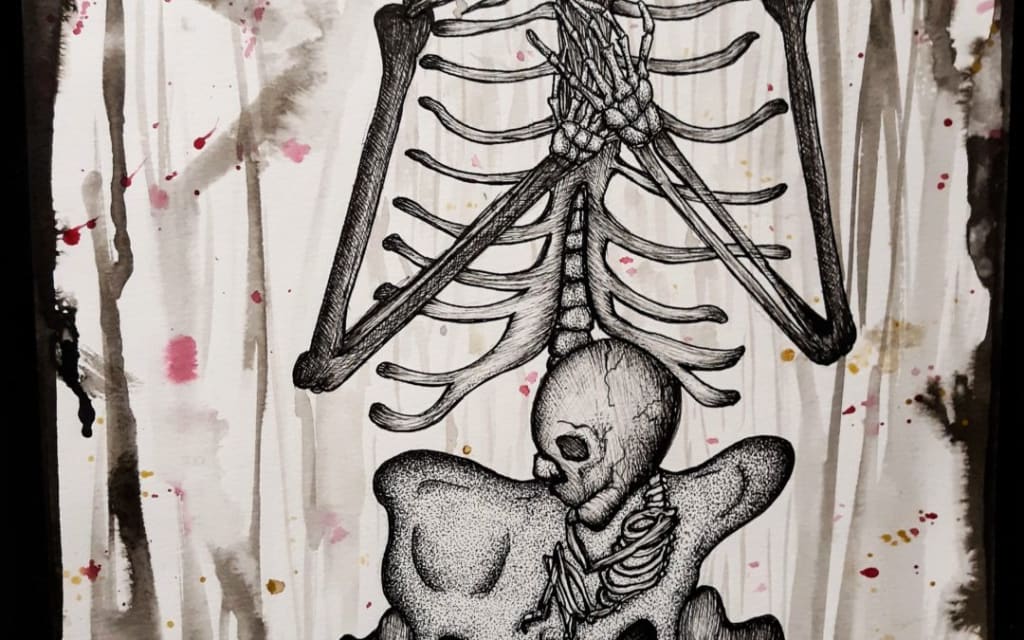
Women can give birth after they die!
After a mother's death baby can survive only five minutes. That means it could only survive while in a hospital. But what if the death of the mother happened at home or elsewhere?
The baby might also be born without the mother's partitions. It is called coffin birth. We can read on Wikipedia that "coffin birth (also known as postmortem fetal extrusion), is the expulsion of a nonviable fetus through the vaginal opening of the decomposing body of a deceased pregnant woman as a result of the increasing pressure of intra-abdominal gases."
At first when I read that I thought that this cannot be true. Apparently, it is. Appears that our bodies are capable of lots more than expected.
"Typically during the decomposition of a human body, naturally occurring bacteria in the organs of the abdominal cavity (such as the stomach and intestines) generate gases as by-products of metabolism, which causes the body to swell. (...) The main differences lie in the state of the mother and fetus and the mechanism of delivery: in the event of natural, live childbirth, the mother's contractions thin and shorten the cervix to expel the infant from the womb; in a case of coffin birth, built-up gas pressure within the putrefied body of a pregnant woman pushes the dead fetus from the body of the mother." That picture is in the same time fascinating, grotesque, and horrifying. Fascinating because it makes you wonder but grotesque and horrifying because it happens to the corpse.
"Numerous documented cases of postmortem fetal extrusion were described in the medical compendium Anomalies and Curiosities of Medicine, first published in 1896. The earliest presented case occurred in 1551 when a pregnant woman was tried and hanged by the courts of the Spanish Inquisition. Four hours after her death, and while the body still hung by the neck, two dead infants were seen to fall free of the body. (...) In the city of Brussels, in 1633, a woman died in convulsions and three days later a fetus was spontaneously expelled. In Weissenfels, in 1861, postmortem fetal extrusion was observed sixty hours after the death of a pregnant woman."
There are more examples of these unbelievable events but it still remains a mystery. It seems impossible when you read "giving birth after death" but when you start to read more about it, you realize that this actually makes sense.
It's kind of like a black hole but not exactly. Gases filling the body until its limits and then collapse, leaving nothing inside. I would say it's sort of poetic. We touching our limits just to collapse in our darkness and misery. A little bit dark but deep.
On the other hand, as a mother, I can imagine the pain of the parent who discovered that their baby is dead. Luckily for me, I never experience anything like it. I wouldn't wish it to anyone.
How is that unknown knowledge? I believe it is not very pleasant to talk about in the classroom. Also, we still have lots of mits about our body and brain nowadays. As well as that, in this overflow of information and the overwhelming size of the internet, we just do not read anymore. We consume so much unworthy and unnecessary knowledge that we forget about being curious. We are just too exhausted to go through the pages without pictures. Because we like what's simple.
Then where are we going? Who we are without knowledge? Without it, we just animals who get to have jobs and houses. Nothing more. After all, we are all going to die someday.
https://en.m.wikipedia.org/wiki/Coffin_birth






Comments
There are no comments for this story
Be the first to respond and start the conversation.